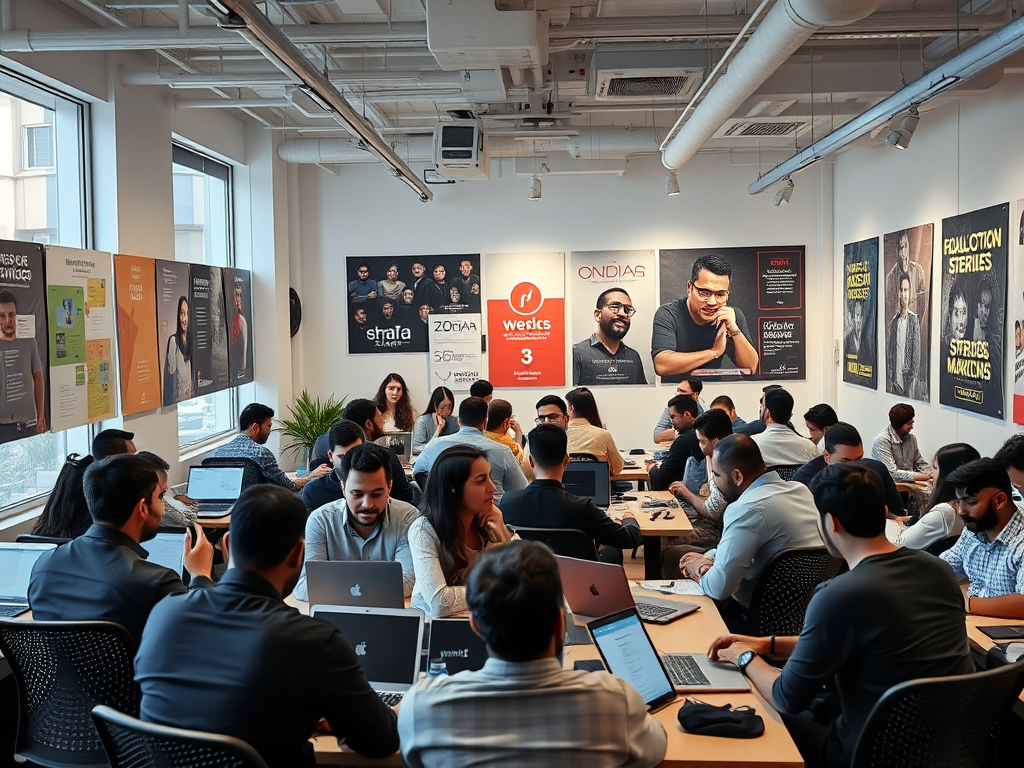Crowdfunding has emerged as a transformative financial mechanism in Dubai’s vibrant startup ecosystem, providing entrepreneurs with the necessary capital to bring their innovative ideas to life. In a city renowned for its entrepreneurial spirit and rapid economic development, crowdfunding platforms play a pivotal role in bridging the funding gap. This article explores how crowdfunding influences the startup scene in Dubai, discussing its various types, benefits, challenges, and overall impact on entrepreneurship in the region.
The Types of Crowdfunding

In Dubai, crowdfunding manifests primarily through several distinct models, each catering to different needs and objectives of startups. Understanding these types can help entrepreneurs select the platform that aligns best with their business model. The main types include:
- Reward-based Crowdfunding: This model allows backers to contribute in exchange for non-financial rewards, such as products, services, or experiences.
- Equity Crowdfunding: Investors receive shares in the startup, enabling them to participate in the company’s potential growth and profits.
- Debt Crowdfunding: Also known as peer-to-peer lending, this involves borrowing money from a group of investors with the promise of paying it back with interest.
- Donation-based Crowdfunding: This model is focused on altruism, where supporters donate money without expecting any financial return; often used for social enterprises.
Benefits of Crowdfunding for Dubai Startups

The advantages of crowdfunding are significant for aspiring entrepreneurs in Dubai. Firstly, it provides a platform for startups to validate their ideas before launching them on a larger scale, as initial contributors help gauge market interest. Additionally, accessing funds without the need for traditional bank loans or venture capital reduces financial pressure on entrepreneurs. Crowdfunding also democratizes finance, enabling ordinary investors to partake in the growth story of a startup. Furthermore, it allows for the cultivation of a loyal customer base from the outset, as backers are often invested in the project’s success. Lastly, successful campaigns can enhance a startup’s visibility, attracting media attention and potentially building partnerships.
Challenges in the Crowdfunding Landscape
Despite its many advantages, the crowdfunding landscape in Dubai is not without challenges. One of the most pressing issues is the high competition among startups vying for funding, making it difficult for new ventures to stand out. Additionally, many entrepreneurs lack the necessary marketing skills to effectively promote their campaigns, resulting in underwhelming financial support. Regulatory hurdles may also pose challenges, as the UAE’s regulations regarding crowdfunding can sometimes be complex and evolving. Trust issues may arise as well, particularly with equity crowdfunding, where investors may be apprehensive about the transparency and viability of startups. Lastly, achieving a funding goal within a limited timeframe is often daunting, and failure to do so can lead to significant reputational damage.
Looking ahead, the future of crowdfunding in Dubai appears promising. With ongoing technological advancements, the emergence of blockchain, and increased regulatory support, the crowdfunding environment is likely to become more robust and inclusive. Furthermore, as more investors and entrepreneurs become educated about the potential of crowdfunding, the quality and quantity of successful campaigns are expected to rise. Local governments and private institutions are increasingly recognizing the importance of supporting innovation through such financing avenues, paving the way for incubation programs and mentorship that complement funding efforts. By fostering a collaborative ecosystem among startups, investors, and regulators, Dubai is positioning itself as a global hub for entrepreneurial talent and innovation.
Conclusion
In summary, crowdfunding plays a crucial role in Dubai’s startup scene by providing essential funding, fostering community engagement, and enhancing visibility for new ventures. Despite facing specific challenges, the benefits it offers cannot be overlooked, making it an attractive option for discerning entrepreneurs. As the landscape evolves with the introduction of supportive regulations and technological innovations, the future of crowdfunding looks bright, promising to continue playing a vital role in nurturing Dubai’s entrepreneurial spirit.
Frequently Asked Questions
1. What is the primary purpose of crowdfunding in Dubai?
The primary purpose of crowdfunding in Dubai is to provide startups and entrepreneurs with an alternative funding source, allowing them to validate their business ideas and raise capital from a diverse group of investors.
2. Are there legal regulations governing crowdfunding platforms in Dubai?
Yes, there are legal regulations in place for crowdfunding platforms in Dubai, and these can vary depending on the type of crowdfunding being utilized. The UAE government has introduced frameworks to ensure compliance and safeguard investors.
3. How can startups successfully launch a crowdfunding campaign?
To launch a successful crowdfunding campaign, startups should clearly communicate their value proposition, create engaging promotional materials (videos, graphics), set a realistic funding goal, and actively engage with potential backers through social media and updates.
4. Can investors lose money in crowdfunding?
Yes, investors can lose money in crowdfunding, particularly in equity crowdfunding, where investments are subject to the risks associated with startups. Investors should conduct thorough due diligence before committing funds.
5. What types of projects are typically funded through crowdfunding in Dubai?
Crowdfunding in Dubai typically supports a wide range of projects, including tech startups, innovative products, social ventures, artistic initiatives, and community-focused projects aimed at societal improvement.
